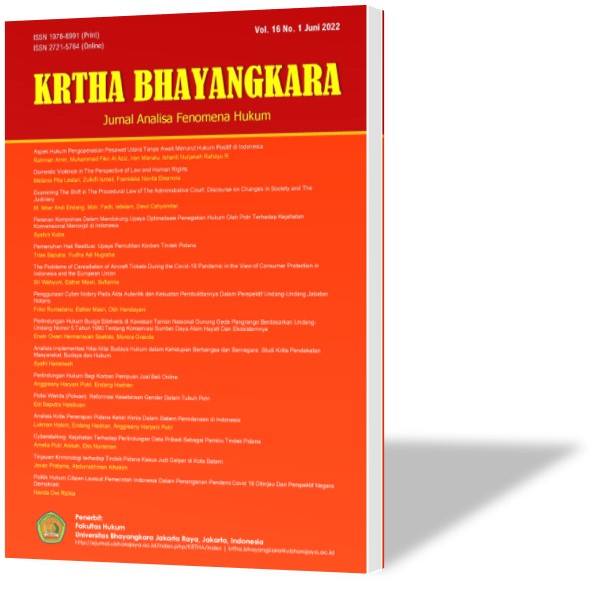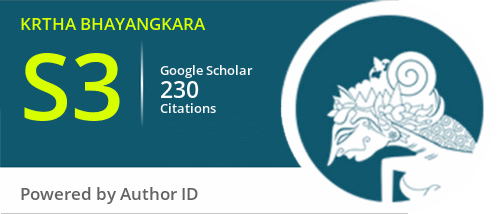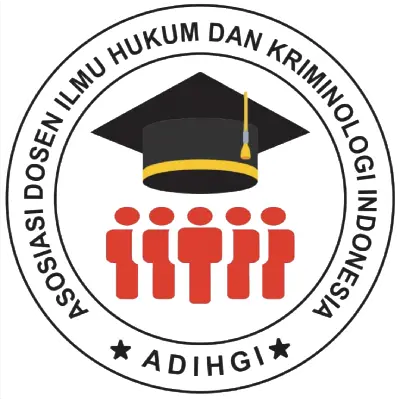Agama Dalam Pelukan Koruptor
DOI:
https://doi.org/10.31599/krtha.v15i2.1119Keywords:
religion, formality, power, corruptionAbstract
At the normative level, all religions teach their adherents not to abuse their authority for personal gain. Religion also instructs us not to take the rights of others. However, the reality shows that a country with a majority religious community cannot be separated from corrupt practices. In fact, many cases of acute corruption are found in countries that have a strong religious identity, regardless of religion. Religious urges, along with an understanding of God in them, are embedded in the structure of the human mind and nerves. However, when the urge does not become a reality, without the support of appropriate circumstances, such as the influence of political or economic power. This qualitative research uses a rational and critical attitude, not based on any faith or religion, by prioritizing secondary data, to answer the research question, how is religion in the arms of the corrupt? Is Religion in the close arms of the corrupt? Because logically and ideally, someone who is religious and carries out his religion well will avoid corruption. From the various literatures in this study, it appears that religion in the arms of corruptors is only a formality at the level of the ritual dimension but has not been able to have an effect on the level of behavior at the level of morality, which has an impact on the separation between worship that is directly related to Allah SWT and worship that is related to religion. fellow human beings. Religion in the arms of corruptors, is only reflected in the practice of religious rituals, is still individual piety, not yet reflected in anti-corruption behavior socially. When religion becomes corrupt because of political and economic influence, it is abandoned.
References
Buku
Asyhadie, Zaeni. 2013. “Aspek-Aspek Hukum Jaminan Sosial Tenaga Kerja Di Indoensia”. Jakarta. RajaGrafindo Persada.
Marzuki, Peter Mahmud. 2017. “Pengantar Ilmu Hukum” Jakarta. Kencana
Taufiqurrohman Syahuri, 2011, Tafsir Konstitusi Berbagai Aspek Hukum, (Jakarta: Kencana Prenada Media Group.
KRTHA BHAYANGKARA | Volume 15 Number 2, December 2021
Agama Dalam Pelukan Koruptor
Perundang-undangan
Undang – Undang No. 13 Tahun 2003 Tentang Ketenagakerjaan
Undang – Undang No. 11 Tahun 2020 Tentang Cipta Kerja
Peratuan Pemerintah No. 35 Tahun 2021 Tentang Perjanjian Kerja Waktu Tertentu, Alih Daya, Waktu Kerja dan Waktu Istirahat, dan Pemutusan Hubungan Kerja.
Jurnal
Aryo, Wisnu. 2020. “Problematika Pembentukan RUU cipta kerja dengan konsep omnibus law” Jurnal Panorama Hukum, Vol.1 No.5
Ima Mayasari, 2020, Kebijakan Reformasi Regulasi Melalui Implementasi Omnibus Law Di Indonesia, Jurnal Rechvinding Vol 9 No 1.
Prabowo, Adhi Setyo Dkk., 2020, ”Politik Hukum Omnibus Law di Indonesia”, Jurnal Pamator, Vol.13, No.1.
Saputra. Rahmat (2020). Kedaruratan Dalam Perspektif Hukum Responsif: Studi Kasus Pembatasan Sosial Berskala Besar di Indonesia. KRTHA BHAYANGKARA, 14(2). https://doi.org/10.31599/krtha.v14i2.523
Suwandi Arham, 2020, Omnibus Law Dalam Perspektif Hukum Indonesia, Vol 7, No. 2.
Tohadi. 2020 “Kajian Kritis atas kewenangan Presiden untuk membatalkan Peraturan daerah dalam Omnibuslaw”, Jurnal Rechts Vinding, Vol.9 No.1




































